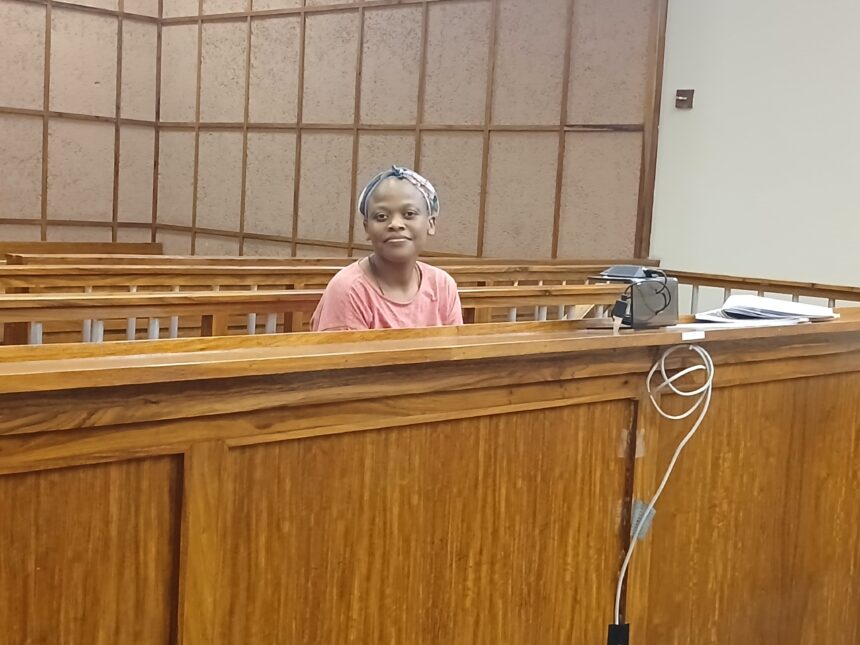Iuze Mukube
Vapeni Lucia Boois, a former police officer accused of killing her one-year-old infant, vehemently denied being mentally disturbed before Judge Philanda Christiaan on Monday.
She was contesting the psychiatric evaluation report presented to the court by senior psychiatrist Hilen Ndjaba.
The findings reached in the psychiatric report are that Boois is fit to stand trial and can be held accountable for her alleged actions, but with diminished responsibility.
Ndjaba reasoned that this was due to the fact that Boois has a personality disorder that prevented her from restraining the impulsive urge to commit the homicidal act that took the life of her one-year-old boy.
However, the 36-year-old is adamant she was neither influenced by what she called being “mentally disturbed”, nor was she under any intoxicating substance when she committed the alleged murder.
“I don’t have a disorder; I am simply traumatised by my past and circumstances,” she said.
She admitted that at the time, she had gathered the courage to kill her son and then herself to escape the suffering of this world.
She further admitted to digging a grave and burying the baby’s body, explaining that it was necessary to prevent decomposition and because she could not carry it with her.
Ndjaba stated that the diagnosis of a personality disorder was based on the prevailing symptoms Boois exhibited.
These stemmed from symptoms of depression, feelings of hopefulness, worthlessness, self-harming tendencies, a sense of not being wanted or supported, and homicidal thoughts.
This was exacerbated by the hopelessness of the situation, as the accused had no support system, was jobless, and the baby had health complications and was a result of a rape.
Boois expressed, while crying, her disappointment with the psychiatrist, stating that the report wrongfully suggested she had a relationship with the man she claimed was a gangster – the father of her child.
She further argued that the report was filled with errors, including the misspelling of her name and other misleading statements, calling it a forgery.
She added that publicly disclosing her mental health evaluation violated her rights, as she never consented to the assessment in the first place.
“I had stated that I was fit to stand trial, but I was forced to take this evaluation, which is a violation of my rights,” she said.
Ndjaba clarified that the diagnosis did not suggest that Boois was influenced by the deceased or provoked to commit the offence but rather that the accused simply wanted to end what she described as the suffering of the world.
She stated that the accused was simply overwhelmed by her past trauma and circumstances, which were aggravated by her disorder.
An individual without such a disorder could control themselves, but those with this condition cannot restrain themselves, even if they know they are doing something wrong, the psychiatrist stated.
The accused had lost hope due to the baby’s health complications, her strained relationship with her mother, and the fact that the baby was a result of rape.
“She wanted to end this, end the lives of her child and herself from the suffering of this world,” stated Ndjaba.
The findings pointed to previous psychiatric evaluations and forensic evidence of the accused, supporting Ndjaba’s findings for the personality disorder.
Ndjaba stated that the disorder makes it difficult to regulate emotions, thoughts, and behaviour, which results in unpredictable mood swings and impulsivity.
She emphasised the disorder is symptomised by emotional instability, feelings of hopelessness, anger, deep sadness, fear of being alone or being abandoned, and partial relationships, such as the accused presented.
Antonia Verhoef is representing the State. -mukubeiuze@gmail.com


